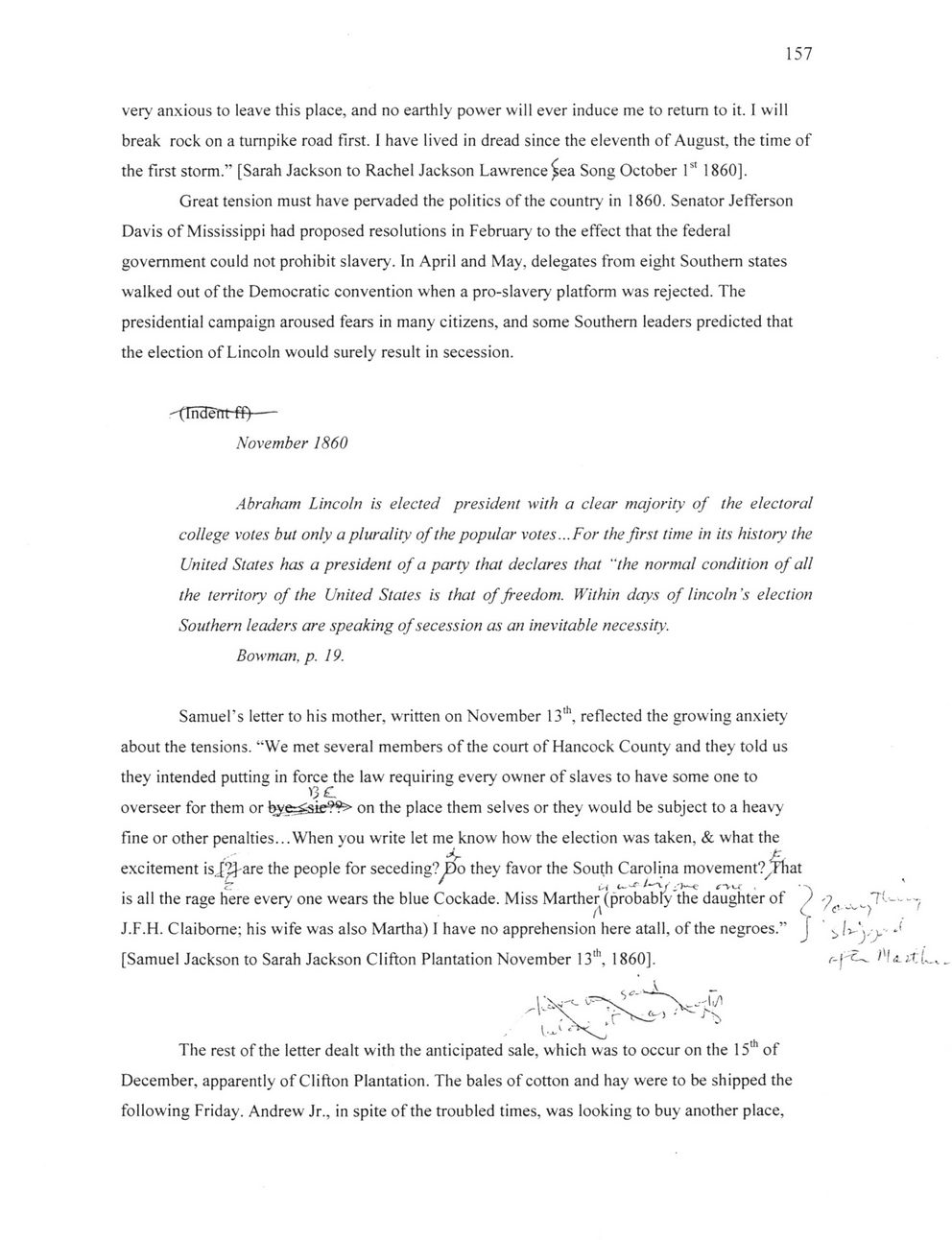This text was obtained via automated optical character recognition.
It has not been edited and may therefore contain several errors.
157 very anxious to leave this place, and no earthly power will ever induce me to return to it. 1 will break rock on a turnpike road first. 1 have lived in dread since the eleventh of August, the time of the first storm.? [Sarah Jackson to Rachel Jackson Lawrence^ea Song October 1st I860], Great tension must have pervaded the politics of the country in 1860. Senator Jefferson Davis of Mississippi had proposed resolutions in February to the effect that the federal government could not prohibit slavery. In April and May, delegates from eight Southern states walked out of the Democratic convention when a pro-slavery platform was rejected. The presidential campaign aroused fears in many citizens, and some Southern leaders predicted that the election of Lincoln would surely result in secession. "tlnderrt-ff)--- November I860 Abraham Lincoln is elected president with a clear majority of the electoral college votes but only a plurality of the popular votes... For the first time in its history the United States has a president of a party that declares that "the normal condition of all the territory of the United States is that of freedom. Within days of lincoln?s election Southern leaders are speaking of secession as an inevitable necessity. Bowman, p. 19. Samuel?s letter to his mother, written on November 13th, reflected the growing anxiety about the tensions. ?We met several members of the court of Hancock County and they told us they intended putting in force the law requiring every owner of slaves to have some one to Y3C overseer for them or bye=?sie??5> on the place them selves or they would be subject to a heavy fine or other penalties...When you write let me know how the election was taken, & what the . ' -*r f: excitement isj^are the people for seceding? Do they favor the South Carolina movement?/That is all the rage here every one wears the blue Cockade. Miss Marther (probably the daughter of / . Tt---- J.F.H. Claiborne; his wife was also Martha) I have no apprehension here atall, of the negroes.? J ^ l> 'yy [Samuel Jackson to Sarah Jackson Clifton Plantation November 13th, I860]. r-ffit a. itL AH (?J The rest of the letter dealt with the anticipated sale, which was to occur on the 15th of December, apparently of Clifton Plantation. The bales of cotton and hay were to be shipped the following Friday. Andrew Jr., in spite of the troubled times, was looking to buy another place,

Jackson, Andrew 032